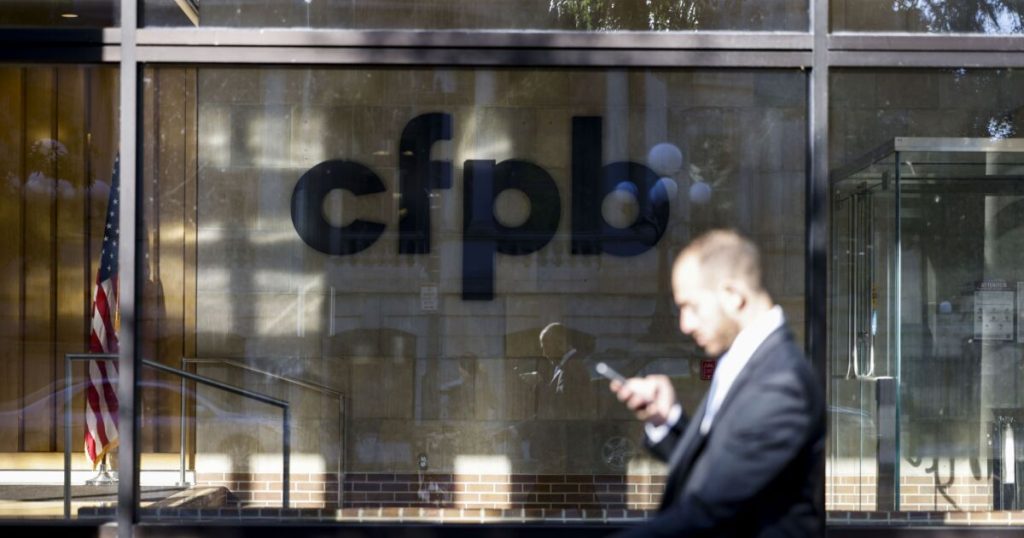The Consumer Financial Protection Bureau has proposed a rule that would prohibit banks and other financial companies from using agreements to waive consumer’s legal rights, protections and remedies under state and federal law.
On Monday, the CFPB issued a proposed rule that would prohibit contract terms that limit free expression, including threats of account closure, fines, or breach of contract claims. The proposal would codify certain longstanding prohibitions under the Federal Trade Commission’s credit practices rule, passed in 1984, that protects consumers from abusive contract provisions. CFPB Director Rohit Chopra previously served on the board of the FTC in the first Trump administration.
The proposal would prohibit any universal amendment clause in a contract that grants a company the exclusive right to modify a material term of the contract without giving the customer the opportunity to affirmatively accept, negotiate or reject modifications. The CFPB said companies currently can make any change they wish to their contracts, for whatever reason and at any time, without communicating the change to a customer. Courts have generally refused to enforce unilateral amendment clauses that do not allow for assent.
In a
“These clauses usually provide little or no benefit to consumers, but they can be valuable to companies by insulating them from accountability or advancing managers’ political interests,” the proposal states. “Form contracts can create operational efficiencies for large businesses, but in recent years they have been used to constrain fundamental freedoms and rights that are recognized and protected under the U.S. Constitution and statutory and common law.”
When consumers want to take out a mortgage, apply for a new credit card, open a checking account, subscribe to a digital payment app or engage in any type of routine consumer financial transaction, they are almost always presented with a standard-form contract. Companies have broad discretion in what terms and conditions to include and consumers “do not really provide meaningful assent to these terms,” the bureau said.
The bureau said that it “has preliminarily concluded” that the use of such terms fall under its federal authority prohibiting “unfair, deceptive, or abusive acts or practices.”
The CFPB is proposing to recodify the FTC’s credit practices rule under Regulation AA that apply to credit transactions, and is adding additional prohibited clauses that would apply to all consumer financial products or services including “deposit accounts, payments, and other services.”
One reason the CFPB cited for proposing the rule is to grant new authority to state law enforcement. State attorneys general cannot yet use the substantial remedies of the Consumer Financial Protection Act, including civil money penalties, to stop some of the largest banks from using confessions of judgment or debanking a consumer for inappropriate reasons.
Prudential banking regulators adopted the FTC’s credit practices rules to banks and credit unions, the CFPB said. The bureau said it does not anticipate that codifying the FTC rule will have a substantial material effect on the market since most companies are already likely to be in compliance.
The FTC’s rule prohibits lenders from using a confession of judgment, a waiver of an exemption, an assignment of wages, or a security interest in household goods as a form of assent to terms of service. The FTC rule also prohibits lenders from misrepresenting the nature or extent of cosigner liability unless the cosigner is informed of it. The rule also prohibits lenders from collecting any delinquency charge on a payment, when the only delinquency is attributable to late fees.
The CFPB drew criticism in 2023 for creating a nonbank public registry of nonnegotiable form contracts that seek to limit liability, waive class action rights and force customers into arbitration. The bureau views such contracts as restricting the ability of consumers to complain and to file lawsuits.
In 2017, the CFPB’s rule that would have eliminated mandatory arbitration clauses in a range of financial contracts including cell phones, credit cards and checking accounts was overturned by Congress.
Comments on the proposal are due on April 1.
